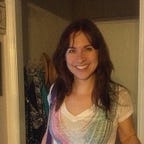Defining Reality in Proof (1991)
Jocelyn Moorhouse’s 1991 drama Proof is a bit of a prickly pear. It stars Hugo Weaving as a blind photographer — yes, you read that right — who’s trying to expand his social circle while getting out from under the thumb of his obsessive housekeeper, Celia (Geneviève Picot). His new friendship with a line cook (a very young Russell Crowe) is rejuvenating at first but gets complicated when Celia draws him into her web. Nothing about Proof is conventional or expected. The tagline for one of the posters calls it “a wicked look at the dark side of love,” making it sound like a proto-Secretary; another claims rather banally, “sometimes it takes the darkness to see the light.” The best one, while still corny, gets the closest to the film’s central conflict: “before love comes trust; before trust comes…”
Not that it’s easy to convey a man’s search for truth and certainty on a movie poster. But it is telling that the 1991 version of the poster makes it look as if the love story between Celia and Andy (Crowe) is central to the film, which it isn’t. To Martin (Weaving), it’s a distraction, an irritation. The film is his story, his search for another person he can trust, not just to be his friend but to help him see the world accurately. As he explains to Andy early on in the film, he probably notices more about their surroundings than Andy does, which is a fairly common trope in films with blind…
